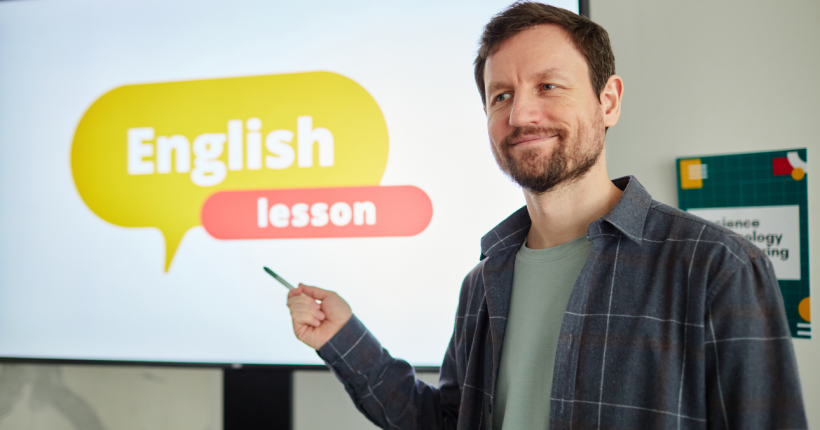In an era defined by accelerating technological advancements, education is no longer confined to the traditional walls of academic institutions. Online learning has become the pivotal cornerstone shaping the educational landscape of the future, offering unprecedented opportunities for accessing knowledge and developing skills. At Oxford College, we believe that understanding these transformations is not merely an option but an absolute necessity for empowering future generations and preparing them for the challenges of the global workforce.
The Genesis and Evolution of Online Learning: From Early Virtual Classrooms to Intelligent Platforms
Online learning wasn’t born overnight; its roots stretch back decades, beginning with correspondence courses and evolving into the first rudimentary virtual classrooms of the 1990s. These early iterations were modest, heavily reliant on text and simple video clips. However, with the explosion of the internet and the advent of broadband technologies, educational platforms began to evolve at an astonishing pace, becoming more interactive and rich in multimedia. Today, we are witnessing a new generation of digital education that integrates the latest technological innovations to deliver an unparalleled learning experience.

Major Trends Redefining Online Learning
Understanding current and future trends is key to harnessing the full potential of online learning. These trends are not just fleeting technologies; they represent profound shifts in educational philosophy and methodologies:
1. Hyper-Personalization with AI and Machine Learning
The era of “one-size-fits-all” education is definitively over. Artificial Intelligence (AI) and Machine Learning (ML) are at the forefront of this revolution. These technologies analyze vast amounts of student data – from learning styles and progress rates to areas of struggle and interest – to create highly customized learning paths. Imagine an AI tutor that adapts content difficulty in real-time, recommends specific resources based on your individual needs, and even predicts potential learning gaps before they occur. This bespoke approach to online learning maximizes engagement, improves retention, and caters to the unique strengths and weaknesses of every learner.
2. Immersive Experiences: The Rise of VR, AR, and XR in Education
Beyond textbooks and flat screens, Virtual Reality (VR), Augmented Reality (AR), and Extended Reality (XR) are poised to transform online learning into deeply immersive experiences. Students will no longer just read about complex concepts; they will live them. Picture medical students performing virtual surgeries, engineering students designing and testing structures in a simulated environment, or history buffs walking through ancient Rome as if they were there. These technologies bridge the gap between theoretical knowledge and practical application, making learning more memorable and impactful. For more insights into emerging educational technologies, you might find this article on EduTech Trends insightful.
3. The Ascent of Microlearning and Microcredentials for Lifelong Learning
In a world where industries and job markets are constantly shifting, the traditional four-year degree as a terminal qualification is becoming obsolete. The future demands continuous upskilling and reskilling. This is where microlearning and microcredentials shine. Microlearning delivers bite-sized, focused content for quick knowledge acquisition, ideal for busy professionals. Microcredentials, on the other hand, are verifiable certifications of specific skills or competencies, often stackable towards larger qualifications. This modular approach to online learning empowers individuals to acquire relevant skills on demand, fostering a culture of lifelong learning and adaptability. You can explore our diverse range of short courses and microcredentials here on our programs page.
4. Gamification and Interactive Content for Enhanced Engagement
Learning should be engaging, and gamification leverages game-design elements and game principles in non-game contexts to make it so. Incorporating points, badges, leaderboards, and progress tracking can significantly boost learner motivation and retention in online learning environments. Beyond simple gamification, truly interactive content, such as simulations, virtual labs, interactive quizzes, and decision-making scenarios, allows learners to apply theoretical knowledge in practical, risk-free settings. This active engagement transforms passive learning into dynamic exploration.
5. Mobile Learning: Education in the Palm of Your Hand
The ubiquitous nature of smartphones and tablets has solidified mobile learning as a fundamental pillar of online learning. Accessibility is key: learners can access course materials, watch lectures, complete assignments, and collaborate with peers anytime, anywhere. This flexibility caters to diverse lifestyles and schedules, making education more inclusive and democratic. Future developments will focus on optimizing content and platforms specifically for mobile-first consumption, ensuring a seamless and intuitive experience.
6. The Blended Learning Paradigm: Harmonizing Online and Offline
While online learning offers immense flexibility, the future often lies in a blended approach. This model strategically combines the best aspects of online and face-to-face instruction. Students might engage with lecture content online, then come together for in-person discussions, practical labs, or collaborative projects. This hybrid approach offers the benefits of personalized digital learning while retaining the invaluable human interaction, mentorship, and community aspects of traditional education.
Foundational Technologies and Tools Driving the Future of Online Learning
The innovations in online learning are underpinned by a sophisticated ecosystem of technological tools and platforms:
- Adaptive Learning Platforms: These cutting-edge platforms use AI to analyze student performance and preferences, dynamically adjusting content, pace, and teaching methods. They provide truly personalized pathways, ensuring each student receives the right challenge and support at the right time.
- Virtual and Augmented Reality Tools: From dedicated VR headsets for immersive simulations to AR apps overlaying digital information onto the real world, these tools are creating unprecedented opportunities for experiential learning across disciplines.
- Advanced Learning Management Systems (LMS): Modern LMS platforms (like Canvas, Moodle, and Blackboard) are evolving far beyond simple content repositories. They are becoming intelligent hubs that integrate AI tools, analytics dashboards, collaboration features, and external educational resources, providing a seamless and comprehensive online learning environment.
- AI Chatbots and Virtual Assistants: These intelligent agents offer instant, 24/7 support to students, answering frequently asked questions, guiding them through course materials, and providing quick feedback, thereby reducing the workload on instructors and improving student satisfaction.
- Learning Analytics and Big Data: By collecting and analyzing vast amounts of data on student interactions, engagement, and performance, learning analytics tools provide invaluable insights to educators and institutions. This data helps identify at-risk students, optimize course content, and understand the effectiveness of different teaching methodologies, constantly refining the online learning experience.
- Collaborative Tools: Beyond basic video conferencing, advanced collaborative platforms facilitate real-time group projects, virtual whiteboards, shared document editing, and interactive discussion forums, fostering a strong sense of community and peer-to-peer learning in online settings.
The Role of Oxford College in Shaping the Future of Online Learning
At Oxford College, we are not merely spectators but active participants in this exciting evolution of online learning. We are committed to:
- Integrating Cutting-Edge Technologies: Continuously exploring and adopting the latest AI, VR/AR, and analytics tools to enhance our online learning offerings.
- Designing Adaptive Curricula: Developing flexible and personalized learning pathways that cater to the diverse needs and goals of our students, recognizing that each learner is unique.
- Fostering a Culture of Lifelong Learning: Offering a dynamic range of short courses, microcredentials, and professional development programs that enable our students to remain competitive and relevant throughout their careers.
- Empowering Faculty: Providing our educators with the training and resources necessary to effectively leverage these new tools and methodologies, ensuring high-quality instruction in the digital realm.
- Building a Global Community: Creating engaging virtual spaces that foster collaboration, discussion, and networking among students from around the world, transcending geographical barriers.
The future of education is undoubtedly digital, dynamic, and deeply personalized. Online learning is not just an alternative; it is quickly becoming the preferred mode of acquiring knowledge and skills for millions worldwide. Join us at Oxford College as we pioneer the next generation of education, preparing you not just for a career, but for a lifetime of learning and success.
Explore our innovative programs and learn how online learning can transform your future at https://oxford.edu.eu/.






